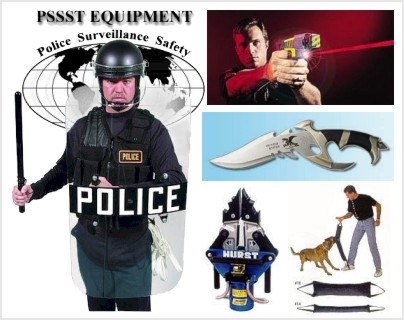 Many of the ANTI and Fear Websites are carrying this article.
Many of the ANTI and Fear Websites are carrying this article. I am asking my readers, have you heard of this? Does this mean the possibility of a Military State? What do you make of this?
El Paso Times reports:
Unrest caused by bad economy may require military action, report says
El Paso Times reports:
Unrest caused by bad economy may require military action, report says
By Diana Washington Valdez 12/29/2008
EL PASO -- A U.S. Army War College report warns an economic crisis in the United States could lead to massive civil unrest and the need to call on the military to restore order. Retired Army Lt. Col. Nathan Freir wrote the report "Known Unknowns: Unconventional Strategic Shocks in Defense Strategy Development," which the Army think tank in Carlisle, Pa., recently released.
"Widespread civil violence inside the United States would force the defense establishment to reorient priorities ... to defend basic domestic order and human security," the report said, in case of "unforeseen economic collapse," "pervasive public health emergencies," and "catastrophic natural and human disasters," among other possible crises.
EL PASO -- A U.S. Army War College report warns an economic crisis in the United States could lead to massive civil unrest and the need to call on the military to restore order. Retired Army Lt. Col. Nathan Freir wrote the report "Known Unknowns: Unconventional Strategic Shocks in Defense Strategy Development," which the Army think tank in Carlisle, Pa., recently released.
"Widespread civil violence inside the United States would force the defense establishment to reorient priorities ... to defend basic domestic order and human security," the report said, in case of "unforeseen economic collapse," "pervasive public health emergencies," and "catastrophic natural and human disasters," among other possible crises.
Phoenix Business Journal Reports:
Wednesday, December 17, 2008
A new report by the U.S. Army War College talks about the possibility of Pentagon resources and troops being used should the economic crisis lead to civil unrest, such as protests against businesses and government or runs on beleaguered banks.“Widespread civil violence inside the United States would force the defense establishment to reorient priorities in extremis to defend basic domestic order and human security,” said the War College report.The study says economic collapse, terrorism and loss of legal order are among possible domestic shocks that might require military action within the U.S.








3 comments:
The anti's are peeing their mantis (mens pantis) at the prospect of sending the full might of the military to the southern border to keep those nasty Mexicans at bay.
This is a natural extension of this. Google "Insurgent Act".
But this would blow up in their faces as the military, if deployed in the streets of America, would be there to control and contain those who applaud this decision. The ones that are yelling to take up arms and repel the invasion.
Az,
Actually I read about this on an ANTI site. They were in an uproar over it. They couldn't decide if it was a good thing or a bad thing. They thought it would be great to put troops on the southern border (like PCorn said), but then they thought it was bad if the army was used if Americans were demonstrating against the Banks or Obama.
I was just curious if anyone else had heard of this and whether there was any validity. With so few comments here, it appears most people have not heard about it.
But the question does come to mind is, if we agree to help Mexico with eliminating the Drug Cartels in Border cities, how do we do that without hurting innocent civilians on both sides? Of course the other way to look at this is the cartels are currently hurting innocent people mostly on the Mexican side of the border cities, but I hear there is worry by El Paso and Laredo that the violence will harm them. So far just the BPs are patrolling, but if we do this partnership with Calderon to eliminate these cartels, how would that work? Will the army be brought in for that?
Az,
I agree. Scary!
Some NWO!
Post a Comment